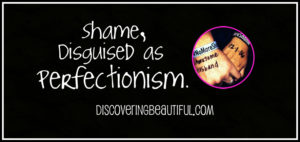
After I finished the last chapter of the first draft of my book, Tales of a Trauma Queen-Saved By Grace, I sat back in my chair and thought, “God my life used to suck.”
I say that knowing how much better this thing has become. I say that, having an understanding of the significance of developing wisdom, resilience, and coming through extremely crappy (mostly self-inflicted) situations, a stronger, bolder, more-whole individual.
My childhood was actually pretty lousy and I know I had nothing to do with the level of the its lousiness.
However, the years where I became personally responsible for the decision-making, (believe it or not) were even more atrocious than my earlier years. My parents didn’t intentionally destroy my sense of self. But I took unraveling what was left of myself to advanced levels of destruction.
As a child I was angry. I can’t really recall having other emotions. I was already sick and tired of being sick and tired from never quite fitting anywhere, from jumping through hoops, always having to quiet myself, having to hide behind masks, and the countless failed attempts at silently blend inside boxes that gave people the idea that I was ‘good’ and ‘normal.’
As a teen I squandered my young adult years stumbling around from job to job, from abusive relationships to toxic relationships, from one-night-stands to friends with benefits, from drinking liquor at 8 am to wake myself up to eating pills all day to stay awake, searching for some elusive feeling I couldn’t name.
I ended up with nothing and still didn’t actually belong anywhere.
I had been searching for a specific sense of something in all of the wrong people, places, and things. Hindsight, in all its glory, has revealed the obvious: Subconsciously, I wanted to find a safe place to land. I wanted so badly to believe that I mattered. I longed to be seen. From childhood to my young adult years, one thing was consistent. I had always felt too ashamed of myself to reveal who I was, to lift my head, or to land long enough to allow any sort of authentic relationship building to evolve.
Instead, when I walked, I walked with my head down.
If genuinely pursued, I ran for cover to the comfort of my dark places, and I lived my life buried deep inside of a facade that never actually felt like it was my place to be.
I didn’t have any standards because I didn’t deserve to have a voice.
I let shame berate my spirit until it suffocated and was no longer.
It’s easy to make choices that don’t make sense to other people when you don’t make any sense to yourself.
Along this winding road that I call my recovery I have learned that addiction was a symptom of my trauma and shame. It represented the same desires I had always carried with me. Drugs hushed the need to belong. They made running feel right. They helped me to forget that I didn’t have any real connections. They helped me to cope with pain and the unknown feelings of discontent that I never fully understood.
I am only ten years old in the recovery world.
For me that means that I have only been sober for ten short years, (minus several Tylenol PM stints lost in dreamland).
And since addiction recovery has eaten up a large chunk of the decade, I have only scratched the surface of this trifecta of fuckery that I have uncovered. It includes my experiences with trauma, the coping mechanisms I developed because of them, and the after-effects I am left with.
One of the most recent revelations that I have been reading and learning about is that shame is really good at disguising itself in many forms.
That sneaky, underlying feeling of never being good enough has always followed me around.
And today, it lives on as a form of perfectionism. Perfectionism operates under the same shame-fed voice that used to fuel my need to escape. It is still a part of that dark part of my mind that tries to convince me that I am only acceptable when I am ‘good’ or that I am only worth being loved if I have all of the things checked off. I have also come to understand that it is a form of self-abuse, and is just another attempt to present an illusion to the world.
The other, bigger-part of this revelation is that like other aspects of shame based feelings, shedding light on them is the main goal. It is where my power is.
When I speak my truth and when I voice my feelings, shame disintegrates. It has no choice but to loosen its grip on my spirit.
I know for sure that I am a perfect storm of mess and great things, and I also know people love me anyway. Most importantly, I love and accept myself as the work in progress that I am and I believe that when my God says I am worthy and valuable, because of Him, I am.
So for now, take that, perfectionism.